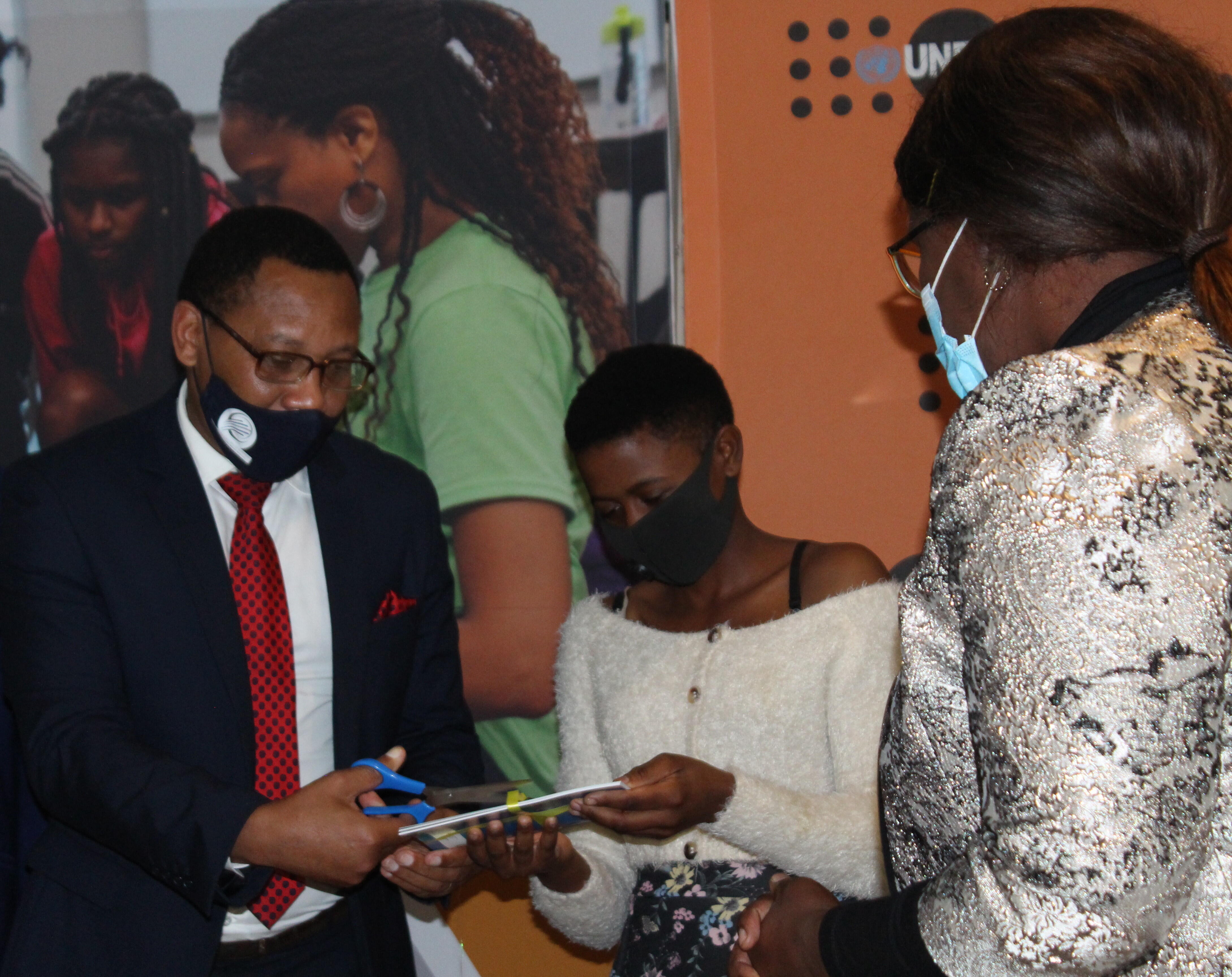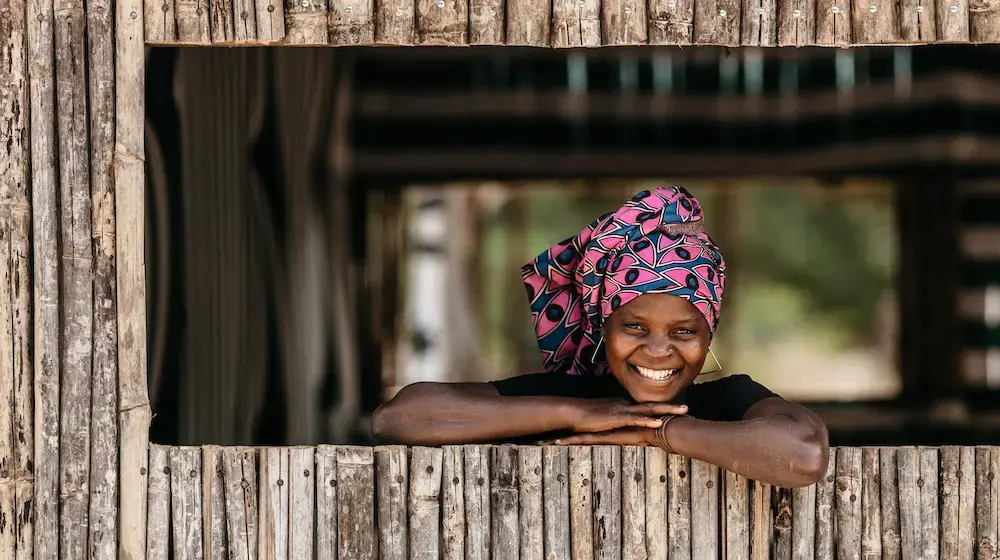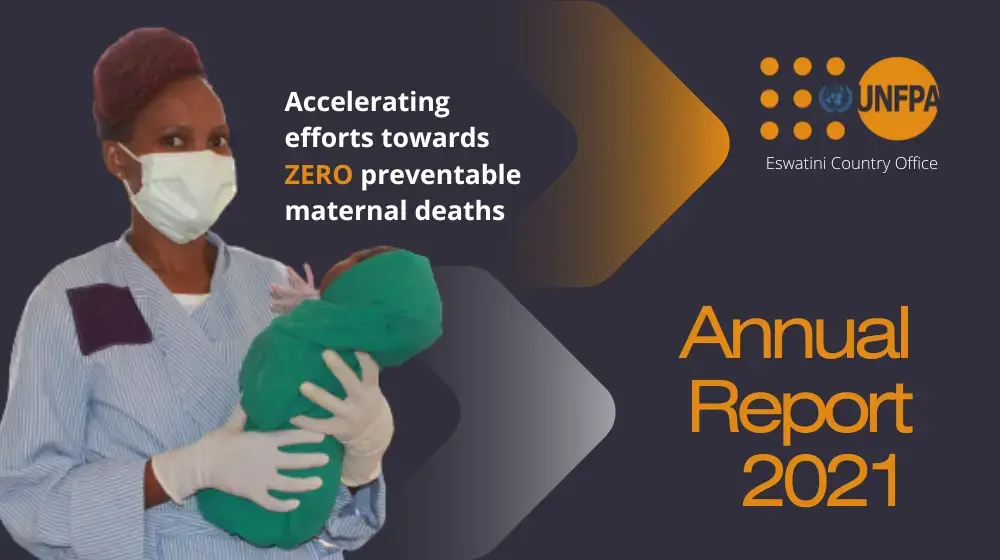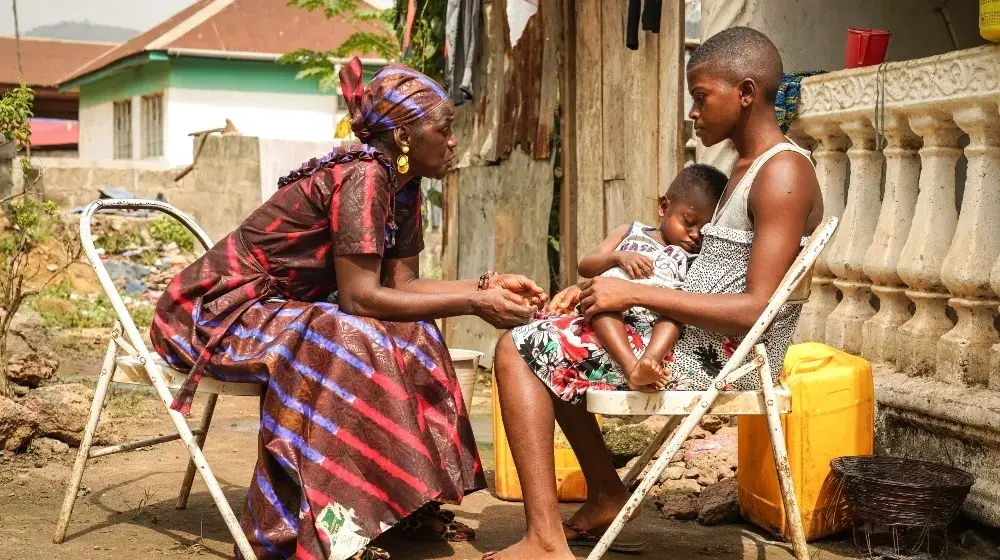“Through selling clothes, I’m able to pay for my son’s school needs. I am also able to support my mother in buying food for the family. This pandemic has changed everything. I can no longer travel outside Eswatini to get my stock. So I’m unable to support my family as I did before,” lamented 24 year old Philile Mkhonta of Fairview in Manzini.
Philile, who six years ago became a teenage mother, is part of the high teenage pregnancy in Eswatini, currently at 87 births per 1000 adolescents. This, together with high unemployment and HIV prevalence are the major problem faced by youth in the country. The COVID-19 pandemic, estimated to result in around 7 million unplanned pregnancies, has worsened vulnerability of young people worldwide.
The National Youth Policy of 2020, launched on the 2nd of September 2020, seeks to change the state of youth in the country through various approaches in education, health and entrepreneurship.
In his remarks, Honorable Harries Bulunga the Minster of Sports, Culture and youth Affairs, who represented Prime Minister His Excellency Ambrose Dlamini, shared that the 9-themed policy will act as a guide in all the country’s efforts to fast track youth development.
“If well thought investments are made in health, education, wellbeing of this population, there is a lot Eswatini stands to benefit,” the Minister explained. “Through this policy, we are setting our sights on two key elements; helping the youth develop their capabilities and creating an enabling environment for youth to adequately express themselves and their varying talents.”
UNFPA Head of Office, hyped praise on Eswatini Government, for the efforts shown towards creating opportunities for the youth. She described it as supporter of UNFPA’s mandate of ensuring that youth reaches their full potential.
“Seeing programmes like the Life Skills Education, Youth Revolving Fund, and Tinkhundla Youth Associations, being expanded and revitalized shows the significance accorded to the youth by the government of Eswatini."
The Head of Office also identified room for improvement in investments made towards Eswatini youth.
“Youth forms the heart of UNFPA. Therefore, we urge the government and partners to do more to ensure that no youth is left behind.”
Thwala-Tembe also emphasised on the importance of significant investments on the youth quoting UNFPA’s Executive Director Dr Natalia Kanem saying, “we must ensure that young people are prioritized in order to have access to the education, tool and services necessary for them to reach their full potential.”
The Eswatini National Youth Council's Chief Executive Officer Makhosami Dlamini, shared that the policy review was much needed for addressing the changes experienced by youth in the years. In his remarks, he made reference to statistics dating as back as 2013, and acknowledged that the situation might have changed, for better or even worse.
“We are faced with a challenge. We need a policy that will address the different needs of the youth. This new policy will provide outcomes in as far as youth employment, HIV, youth entrepreneurship, education, teenage pregnancy and crime is concerned.”
Director of Youth Affairs Bheki Thwala, noted that the revised policy, whose crafting was shaped by voices of the youth, is customised to provide fix some of the gaps identified in the previous edition.
“We shall ensure proper quality check, adequate monitoring as well as accountability for the successful implementation of the policy.”
Sizolwethu Maphanga, speaking on behalf of the thousands of Eswatini youth shared her excitement on the policy labeling it roadmap to take youth to their full potential. She further pleaded with government and partners to ensure that it doesn’t become an ornament for decorating office.
“The policy will remain a beautiful document in the office, if it is not awarded resources to be implemented to reach out to the youth and transform our livelihoods,” Maphanga explained. “This can also help the youth in making informed decisions against our shortcomings and allow us to meaningfully participate in economic activities.”
The policy was launched during a significant period for both Eswatini and UNFPA. Eswatini is currently experiencing the demographic dividend while UNFPA is in the decade of action for accelerating the sustainable development goals. Therefore if implemented well, this policy will ensure that Eswatini youth are better off by 2030.





